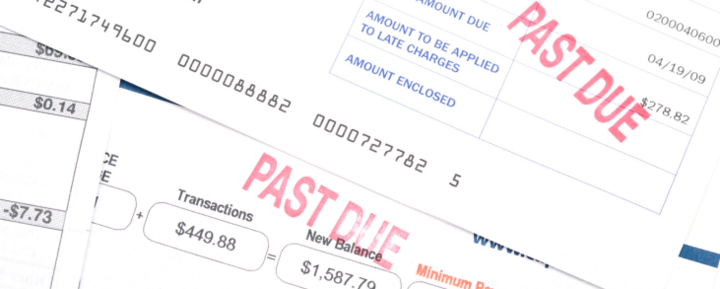Having your wages garnished can be incredibly stressful. When this happens, it means there’s a court order to have a portion of your earnings withheld to pay a debt. So if you owe a creditor and they’ve begun garnishing your wages, you’re probably wondering how to stop a wage garnishment immediately. Here’s what you need to know.
Understanding the Implications of Wage Garnishment
It’s important to know how garnishment impacts you, as well as the rights you have.
The Impact on Your Income
Having your wages garnished can jeopardize your financial security. However, there are limitations on how much can be taken.
The Consumer Credit Protection Act (CCPA) generally limits the maximum weekly garnishment to 25% of your pay (after taxes and some other legally required expenses are deducted) or 30 times the federal minimum wage. However, you could pay more if your wages are being garnished for bankruptcy, tax, or support purposes (such as alimony or child support).
The Impact on Your Employment
Under federal law, your employer can’t fire you for having a single debt garnished. However, in some states, your employment could be terminated if you’re facing more than one garnishment order.
Legal Rights and Protections
Some state laws lower the maximum amount of money that can be taken from each paycheck. Additionally, some types of income cannot be garnished for most debts:
- Disability benefits
- Alimony payments
- Social Security income
- Veterans’ benefits
- Unemployment benefits
- Supplemental security income
However, even protected earnings can be garnished for child support or spousal support.
Methods to Stop Wage Garnishment Immediately
Wage garnishment is discouraging no matter how much you make. But if you have little to no disposable income, it can make navigating daily life downright impossible. Fortunately, there are ways to stop wage garnishment.
Pay Off the Debt in full
If you can find a way to resolve your debt and pay what you owe immediately, it’s much better to do so than to deal with wage garnishment. Unfortunately, it’s not feasible for many people to make a lump sum debt payment to close out the debt and stop the collection efforts.
Set up a Payment Plan
If you can’t pay the debt in one lump sum, setting up a payment plan to pay off your debt may be an option. Most creditors would much rather negotiate a payment plan directly with you than go through the legal action necessary to garnish your wages. If your wages are already being garnished this may be harder, but it doesn’t hurt to ask.
File for Bankruptcy
Filing Chapter 7 or Chapter 13 bankruptcy often stops wage garnishments. Because it is a court order, this usually stops debt from collections and may offer you a way out of financial hardship. The downside to bankruptcy is that it will harm your credit score and stay on your credit reports for seven to 10 years, depending on the type of bankruptcy. Plus, you could still be forced to pay the debt in full.
How to Negotiate With Creditors
Negotiating a debt settlement can be helpful if you’re dealing with a creditor or collection agency that claims you owe money for an outstanding debt. That said, it’s important to go about it carefully. It’s advisable that you speak with a debt relief attorney.
When to Involve a Lawyer
You can certainly negotiate with creditors on your own. But it’s not always easy and you may not know if you’re getting the best deal. That’s why it can definitely be worth hiring a lawyer, especially if you think creditors will be difficult to deal with. At the very least, a consultation may give you some valuable legal advice on how to deal with your creditors when being sued.
Crafting a Negotiation Strategy
When negotiating with creditors, the Consumer Financial Protection Bureau (CFPB) suggests the following general strategy:
- If you’re dealing with a debt collection company, ask them to validate your debt (prove that you owe it).
- Calculate a realistic repayment schedule, or come up with a reasonable settlement offer.
- Offer the plan to the debt collector. Document your agreement in writing if they accept.
When negotiating with a debt collector or creditor, remain calm and courteous — it might help your case. If you’re being treated unfairly or you believe your rights are being violated, you may want to ask for help from an experienced debt relief attorney.
Mistakes to Avoid
If you negotiate your debts successfully, you might be able to find significant debt relief. But if you make a mistake, you might end up worse off than before. One of the main mistakes to avoid is offering to pay more per month than you can afford. You don’t want to have to re-negotiate repayment later on.
Additionally, steer clear of companies that offer to settle your debt with promises of a guaranteed result. Your creditors are not obligated to settle, and they may refuse to work out a new deal. Debt relief companies that promise otherwise and require upfront payment before results are delivered are likely scams. Working with an experienced and reputable debt help lawyer will ensure the best possible outcome with your best interests in mind.
Dealing With Student Loan Garnishment
If you pay your student loans as agreed, you don’t have to worry about garnishments. If you’ve defaulted, though, here’s what you need to know.
How Student Loan Garnishments Work
For federal student loans, the U.S. Department of Education or any entity collecting on its behalf can garnish your wages without a court order if you default on your loan. This process, known as Administrative Wage Garnishment (AWG), allows them to take up to 15% of your disposable income. However, you must be left with an amount that is at least 30 times the federal minimum wage per week. The government is required to notify you of the garnishment ahead of time, giving you a chance to enter into a voluntary repayment agreement or challenge the garnishment.
For private student loans, the lender must sue you and obtain a court order before garnishing your wages. The amount that can be garnished and the process vary by state, as state laws apply in these situations.
Options to Stop Student Loan Garnishments
There are a few ways to stop garnishment of federal student loans. For instance, you can rehabilitate your loans. This involves agreeing to a set payment plan with the loan servicer. After making a series of consecutive on-time payments — usually nine payments within 10 months — the loan is considered rehabilitated, and the default status is removed from your record. This stops the garnishment.
You can also consolidate multiple federal student loans into a single Direct Consolidation Loan. This process can also convert your defaulted loan into a current loan, stopping the garnishment. However, you must agree to repay the new loan under an income-driven repayment plan, or make three consecutive, on-time, voluntary payments on the defaulted loan before you consolidate it.
Another option is to contact your loan servicer to negotiate new repayment terms, even after garnishment has started. While this might not always stop the garnishment, it can lead to more manageable payment arrangements.
Finally you have the right to challenge the garnishment by requesting a hearing. If you believe the garnishment was initiated in error, if you’ve been employed for less than 12 months after being involuntarily separated from employment, or if you can demonstrate financial hardship, you might be successful in stopping the garnishment.
Stopping wage garnishment for private student loans usually requires dealing directly with the lender or through the court system, since private lenders must file a lawsuit and obtain a court order to garnish wages. You might be able to negotiate a settlement or payment plan directly with the lender. Or, if you believe the garnishment is based on incorrect information, such as the amount owed or the status of the loan, you can contest the court order. As a last resort, filing for bankruptcy might stop garnishment for some debts.
Applying for a Claim of Exemption
If having your wages garnished is making it so you can’t afford basic expenses, you might want to consider applying for a claim of exemption.
What Is a Claim of Exemption?
A claim of exemption is a legal process that allows you to assert that your wages should not be garnished, either because the garnishment would cause undue financial hardship or because the wages in question are legally exempt from garnishment.
How to Apply for a Claim of Exemption
You can file a Claim of Exemption with the court that issued the garnishment order. In this claim, you’ll need to provide evidence and arguments as to why your wages should be either fully or partially exempt from garnishment.
What to Expect After Applying
After filing, a hearing may be scheduled where you can present your case to a judge. The creditor who initiated the garnishment can also appear to contest the claim. The judge will then decide whether to grant the exemption and, if so, what portion of wages will be protected from garnishment.
The Role of Bankruptcy in Stopping Wage Garnishment
Filing for bankruptcy can stop wage garnishment, but it doesn’t always. As such, it’s important to weigh the decision carefully. Keep in mind that not everyone qualifies for bankruptcy.
Types of Bankruptcy to Consider
There are two types of bankruptcy for individuals: Chapter 7 bankruptcy and Chapter 13 bankruptcy. Chapter 7, also known as liquidation bankruptcy, usually wipes out all of your debt and stops all garnishments permanently. Chapter 13 involves creating a payment plan to pay off your debts over three to five years. (Note that student loans generally cannot be discharged in bankruptcy.)
Pros and Cons of Filing for Bankruptcy
Filing bankruptcy has its advantages, including:
- It often stops wage garnishments.
- It can erase credit card debt and other types of consumer debt.
- It can prevent foreclosure of your home.
However, it also has certain disadvantages:
- Your assets may be liquidated to pay off creditors.
- You will likely need to hire a bankruptcy lawyer, which constitutes an additional expense.
- Bankruptcy has a significant negative impact on your credit.
A debt relief attorney can help you weigh the pros and cons and decide whether bankruptcy is the right choice.
Stop Wage Garnishment With Tayne Law Group
If you want the best chance of resolving your debt, including stopping a wage garnishment, working with an experienced debt relief attorney at Tayne Law Group is your best bet. We have been helping clients resolve their debts for more than two decades.
If you’re ready for a fresh start, call our law firm for a consultation at 866-890-7337 or fill out our short contact form, and we’ll get in touch.








